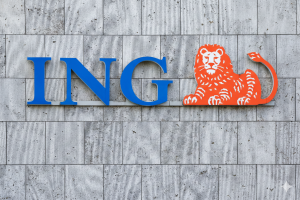
Finance
Artificial intelligence (AI) is emerging as the most powerful force shaping the future of banking. According to a new report by Boston Consulting Group (BCG), banks could generate up to $370 billion in additional annual profits by deploying AI across their operations. The consultancy estimates that AI could cut banking costs by as much as 40%, while enabling smarter lending, better customer insights, and faster digital services.
The findings highlight a clear shift: AI is no longer a side project for efficiency—it’s becoming the foundation of modern digital banking.
BCG’s report describes AI as a “catalyst for business model transformation.” Holger Sachse, BCG managing director and co-author, said that banks using agentic AI—systems that can analyze and act independently—are already reshaping how the industry operates.
Traditional banks face a tightening revenue–cost squeeze, driven by higher interest rates, legacy systems, and competition from fintechs. AI can help reverse this pressure by automating manual work, accelerating loan processing, optimizing credit risk, and improving mortgage decision-making.
For banks that adopt early, the reward isn’t just efficiency—it’s the ability to redesign operations around customer experience, from smarter checking accounts to real-time support and predictive financial advice.
BCG identifies three distinct phases of AI maturity: Deploy, Reshape, and Invent.
Deploy focuses on automating basic tasks—such as customer service chatbots and back-office processes.
Reshape integrates AI into full workflows, helping lenders improve credit analysis, fraud detection, and loan approvals.
Invent, the most advanced stage, creates entirely new AI-powered business models and products.
“Too many banks are stuck in deploy mode,” said Bharat Poddar, BCG senior partner. “AI-first banking requires more than tools—it demands a reinvention of the operating model.”
The consultancy predicts that even if just 5% of retail banks reach the “Invent” stage, the competitive balance of the global financial system could change dramatically, leaving slower banks at risk of falling behind.
While AI offers enormous upside, it also brings disruption. Singapore’s DBS Bank announced plans to reduce its workforce by 10% due to AI-driven automation. Former CEO Piyush Gupta admitted, “For the first time, I’m struggling to create jobs.”
However, BCG’s analysts emphasize that AI can also create higher-value roles, allowing employees to focus on financial advisory, innovation, and customer engagement rather than repetitive tasks. For banks that embrace AI thoughtfully, technology becomes a tool for growth—not replacement.
AI is no longer a distant trend—it’s the next frontier of profitability in global finance. Banks that adopt scalable AI systems can improve performance, enhance customer trust, and strengthen long-term value creation.
The message is clear: in an era of rapid digital banking evolution, success will belong to those that use AI not just to cut costs, but to transform how value is delivered across credit, deposits, loans, and customer experience.
 Previous Post
Previous Post
SKN | Fintechs Outpace Banks on AI by Embracing Experimentation
 Next Post
Next Post
SKN | Bank of England Considers Capital Buffer Reform as Deutsche Bank Adjusts to AI-Driven Risk Landscape

February 22, 2026

February 22, 2026

February 21, 2026

February 21, 2026